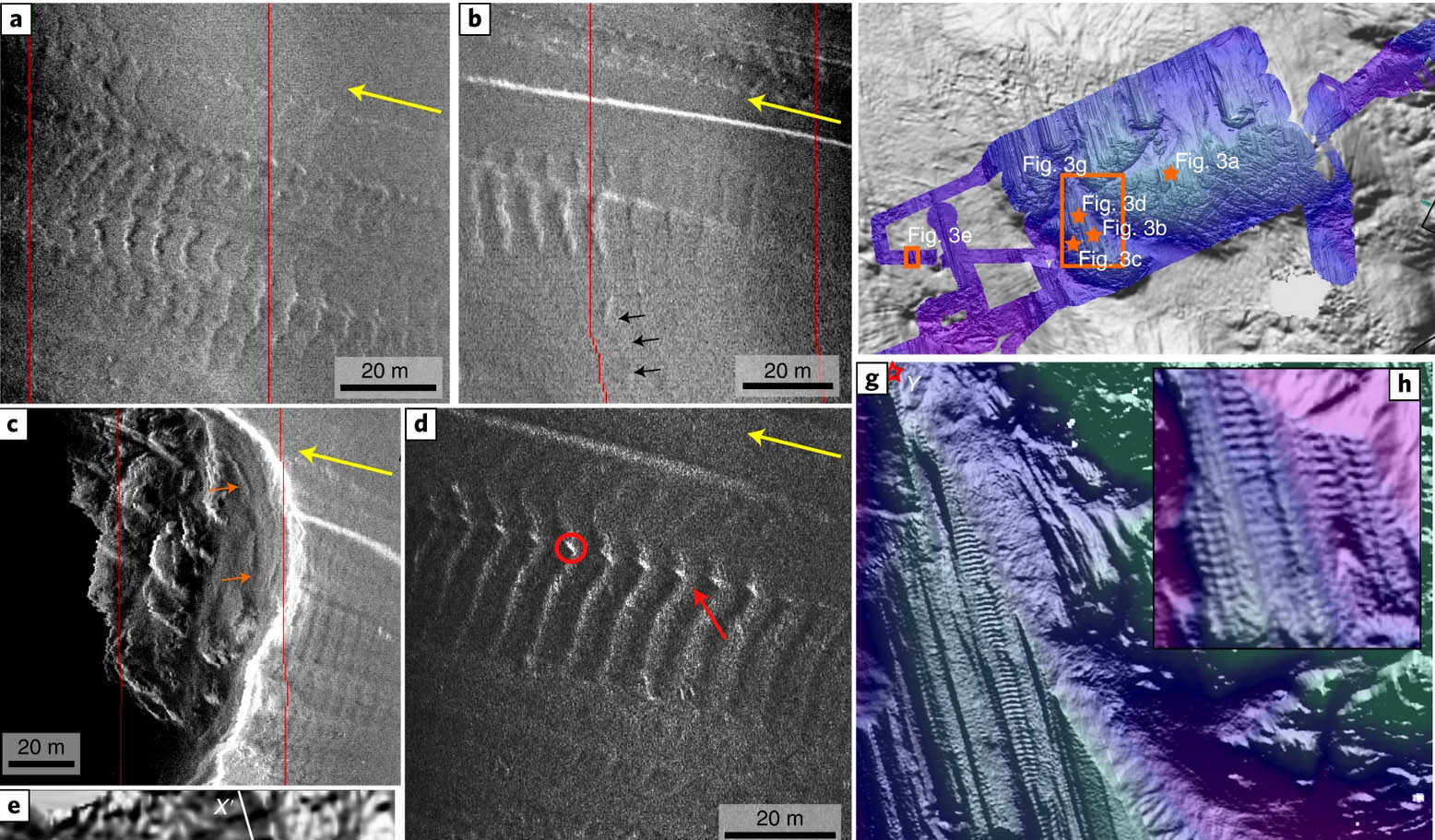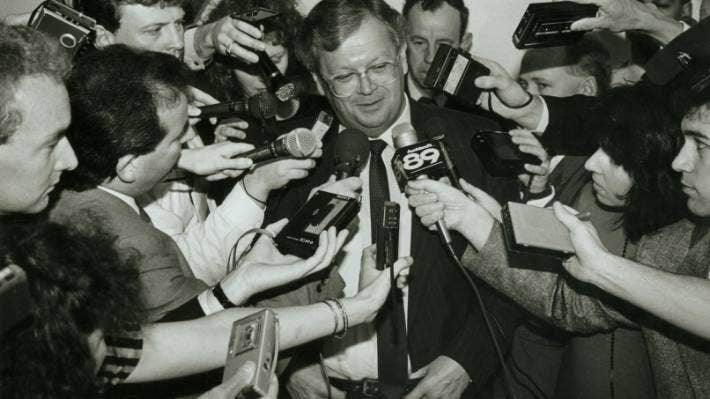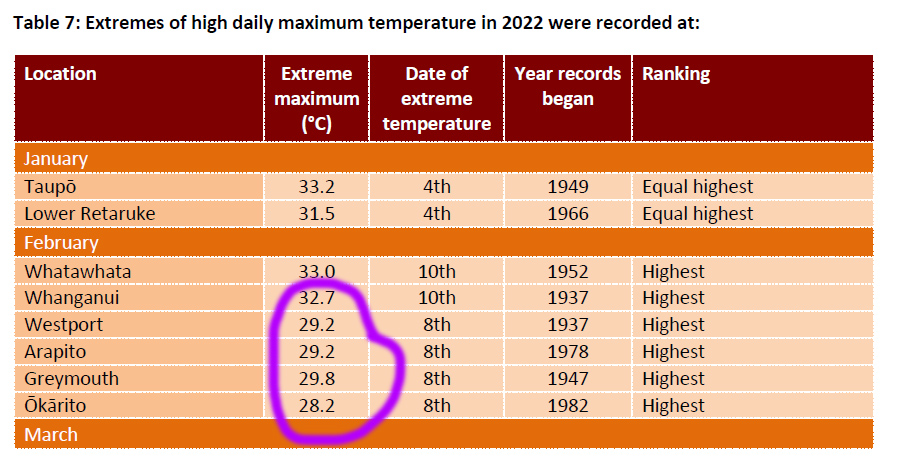Mr President. Congratulations on your election to the Presidency of this General Assembly. You take the reins at an important time. We wish you every success. You have our support.
The recent events in Kenya, Iraq and Pakistan show how troubled the world can be. We commiserate with the governments and people of those countries and extend our deepest sympathies to those who lost family and friends in these tragic incidents.
Mr President.
For most of us, born after the Second World War, the United Nations has been at the centre of our conception of how the world organises itself.
But the reality of the UN can be quite challenging.
It’s the one place where the countries of the world meet, talk and try to find solutions to global and regional issues.
Sadly, some of those discussions can become so arcane they are sometimes quite removed from the issues they claim to be addressing.
That is a concern especially for small states for whom this Organisation is so important.
Even more sadly, the UN has too often failed to provide solutions to the problems the world expects it to resolve.
The gap between aspiration and delivery is all too apparent, as the situation in Syria has again so brutally reminded us.
But any failures of this institution are less failures of the Organisation than they are failures of us, its Member States, and those who have the responsibility of leading those states.
There would be no dreadful humanitarian situation in Syria if Syria’s leaders had upheld the commitments made to the international community and to the Syrian people when Syria joined this organisation and ratified the Human Rights Covenants.
This Organisation would not also have been a powerless bystander to the Syrian tragedy for over two years if the lack of agreement among the Security Council’s Permanent Members had not shielded the Assad regime – thereby re-confirming the fears of New Zealand and others who had opposed the veto at the original San Francisco conference in 1945.
New Zealand is pleased that the Security Council has at last met on the situation in Syria.
The Secretary-General has advised the Council and the General Assembly, “The United Nations Mission has now confirmed, unequivocally and objectively, that chemical weapons have been used in Syria.”
The report found “clear and convincing evidence that surface-to-surface rockets containing the nerve agent sarin were used”on 21 August.
The information in the report also makes it very clear that those rockets must have been fired by the Syrian regime. As the Secretary-General has said, these are war crimes.
Those responsible must be brought to account.
Those that try to cast doubt on the report’s conclusions make themselves look foolish and do a disservice to the UN.
It is imperative now that the Council acts. It must adopt a resolution that responds to the use of chemical weapons.
It must find a means to hold those responsible to account, and establishes an effective mechanism for the destruction of those weapons in line with the proposal developed by the United States and Russia.
The resolution must also provide for the protection of the civilian population.
Mr President.
While Syria necessarily commands our attention, I also want to spend some time on some more positive developments both for the Organisation and its member States.
I want to begin with my own country – whose emergence as a fully independent state has proceeded in parallel with the development of the United Nations.
New Zealand was present at the founding in San Francisco.
We take pride in the fact we were able to influence the drafting of the Charter, particularly the Trusteeship section that paved the way for a number of states to become full members of this Organisation.
New Zealand has come a long way since the Charter was adopted.
Then, we were emerging from our status as a dominion of the United Kingdom.
Today, we proudly assert ourselves as a small but independent and diverse country that has a wide network of friends and trading relationships in all the major regions and markets of the world.
We value our traditional relationships with Australia and the Pacific, and in Europe and North America as we build new links with partners in Asia, the rest of the Americas and the Caribbean, and Africa.
Building and sustaining political and commercial links across the regions of the world is no small matter for a country like New Zealand.
We are surrounded by the Pacific Ocean and located over three hours flying time from our closest neighbour, in one of the least populated parts of the world.
We share with our Pacific Island neighbours the challenges of distance and isolation, and of having to hold our own against much larger countries whose economies of scale and proximity to markets give them a considerable competitive advantage.
These factors have reinforced New Zealand’s approach to the United Nations and to the other international organisations that have shaped the post-World War II environment.
We have a strong preference for a rules‑based multilateralist approach, whether in the United Nations, the World Trade Organisation or the World Bank.
We know that rules and standards set internationally offer us the greatest certainty and the greatest protection.
We draw strength from global agreements and from the collective commitment they represent.
That’s why we attach such importance to the completion of the Doha Round.
While New Zealand continues to actively negotiate bilateral and regional trade agreements, we acknowledge that FTAs often leave least developing countries on the sidelines.
The benefit of the WTO, as with the UN, is that rules negotiated there apply across the globe, irrespective of your size or wealth.
Our preference for international rules reflects New Zealand’s national approach to governance.
We have a robust and transparent system of government and sound financial institutions that helped us to ride out the worst effects of the Global Financial Crisis.
This was despite the significant economic and social challenges we faced after the destructive earthquake that struck Christchurch, our second largest city, in 2011.
Mr President.
As we work to restore the built environment in Christchurch, New Zealanders are also conscious of our dependence on and our responsibility towards the natural environment.
In policy terms, climate change has been a challenge for New Zealand, and for the international community more broadly.
But New Zealanders know we must play our part, and we have taken action.
We have introduced an extensive emissions trading scheme.
We are investing in the Global Research Alliance to find new ways to manage agricultural greenhouse gases.
And we have committed to reducing emissions by 5 per cent below 1990 levels by 2020.
We made that commitment under the Framework Convention rather than the Kyoto Protocol.
We have done this because while Kyoto once seemed to offer a path forward, things have changed.
The Protocol now covers only a small percentage of global emissions.
We need a single legal framework that commits all major emitters.
Mr President.
While climate change is an important issue, it pales in comparison to the problems faced by many UN members.
One of the most intractable is that of Israel and Palestine.
As long as this problem is left unresolved there can be no assured peace in the Middle East, and no security for the wider region.
And there can be no resolution without the Israeli and Palestinian peoples both being assured of viable homelands within secure borders.
New Zealand pays tribute to the tenacity of US Secretary of State Kerry, and to the courage of President Abbas and Prime Minister Netanyahu for agreeing to resume the Middle East Peace Process.
In our own region, we have celebrated the successful conclusion of the UN Mission to Timor-Leste and the transition of the Regional Assistance Mission to the Solomon Islands from a military to a police‑led operation.
We look forward with intense interest and cautious hope to the reinstatement of democracy in Fiji. We acknowledge the positive developments there, including on election preparations and voter registration.
The countries of the Pacific, including New Zealand, want and need Fiji to be successful, democratic and well-governed.
Mr President.
Earlier this year New Zealand withdrew the bulk of its forces from Afghanistan, following the closure of the New Zealand-led Provincial Reconstruction Team in Bamyan province, which brought security and helped bring a significant improvement in governance and development.
School and hospitals were rebuilt and health centres opened. Mortality rates for children under five were halved. Maternal deaths are a quarter of Taliban-era levels. Girls now make up half the number of primary school children.
New Zealand expertise also helped substantially improve agricultural yields through the implementation of modern farming techniques.
We are building the largest solar energy system in Afghanistan, which will bring a renewable source of electricity to much of Bamyan township.
This has been a big commitment by a small country, situated far away. It also came at considerable cost; ten of our service men and women lost their lives while on duty there.
Even so, we are proud of what we achieved in partnership with the people of Bamyan and hope those gains can be sustained in the years ahead.
Mr President.
In Africa, we see a continent where many countries have faced real challenges.
But as the President of Nigeria reminded us earlier this week, the new story of Africa is the growing number of countries in the region, which are enjoying the benefits of good governance, sound economic growth and development driving positive change across the continent.
All this is good news for Africa and for the world.
New Zealand will do what we can to help with targeted assistance where we have real expertise to offer – in agriculture, renewable energy and good governance.
New Zealand also recognises and supports the critical roles of the African Union and Africa’s sub-regional bodies in ensuring Africa’s security and future prosperity.
New Zealand also recognises the importance to Africa, to the Caribbean and to our own region of the Arms Trade Treaty adopted in April and signed by New Zealand and many others on the 3rd of June.
This Treaty should curb the flows of small arms and other weapons, especially to conflict regions, and help arrest the deaths and human misery that are they cause.
Mr President.
I want also to applaud the progress made in implementing the Millennium Development Goals while at the same time acknowledging that much work has yet to be done.
We now need to work together on a post 2015 development agenda focused on creating economic opportunities and the eradication of poverty.
Many of the same issues will be addressed at the Conference of Small Island Developing States, which Samoa is to host next year.
New Zealand is pleased to be a major supporter of this important UN effort and, with the rest of the Pacific, looks forward to welcoming the world to our region.
Mr President.
We need to remind ourselves that sound governance arrangements and transparency of process are also vital virtues for international organisations, including this United Nations.
By any objective assessment, this organisation has not been equipped with the structures and rules it needs to operate as it should.
Yet there has been deep resistance to efforts to make things better. That needs to change.
The rationale for UN reform is clear. Membership has quadrupled since 1945. Over the same period, its key organs ‑ particularly the Security Council – have become hostage to their own traditions and to the interests of the most powerful.
From the 1950s through into the 1990s, we could blame the Cold War when the Security Council did not act.
That does not wash today.
The problems are more systemic and relate both to the composition, as well as the formal and informal processes of the Council.
We now seem to have a practice whereby the Permanent Members can not only block Council actions through the veto.
They also appear to have privileged access to information and can stop the Council from meeting if it does not suit their collective purposes.
Such behaviours damage the reputation and credibility of the wider Organisation and must be challenged.
These are not necessarily matters of Charter reform, which we know is difficult, but of the effective functioning of the Organisation – an issue in which we all have a stake.
New Zealand is not advocating revolution but we are asserting the Council can and must do better in the way it conducts its business.
That is the approach New Zealand will bring to the Security Council if we are elected next October.
If successful, it will be 21 years since New Zealand last served on the Council – a long time ago but not so long that we have forgotten the lessons learned during our last term.
At the top of that list was you have to be engaged, to listen to the concerns of others, and to have a view and a voice if you are to be relevant.
There is no point in joining the Council simply to make up the numbers.
Sometimes, you have to speak up and shine a light on what is going on ‑ or not going on ‑ even when that may be inconvenient to others.
This applies whether the issue is Rwanda or Somalia, Yemen or Yugoslavia in 1993/94, or the Democratic Republic of Congo, Sudan or Syria in 2013/14.
My hope is when member states make their decision on whom to vote for in October 2014 they will look at New Zealand’s record and know we will be a credible, positive influence on the Security Council and a voice for the interests of the wider Organisation.
Thank you.







